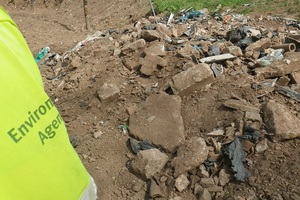Home Secretary stands firm on tackling guerrilla protest tactics
Crucial new changes to public order law will put a stop to the relentless reoffending and significant disruption caused by a selfish minority of protesters, which impinge on the rights of the British public to go about their daily lives in peace.
Announced in the Queen’s Speech, the Home Secretary will today introduce a new public order bill with a range of proposals to better protect the integrity of transport networks and fuel supply in England and Wales, making it a criminal offence to interfere with key national infrastructure.
Police will also be given the power to proactively stop and search people and seize items intended to cause serious disruption by ‘locking on’ – for example gluing themselves to busy roads or complex bamboo structures. This tactic is dangerous and removing people safely is a significant drain on police resource.
Despite a rise in these dangerous and highly disruptive protests in recent years, which have stopped the hardworking majority from going about their days, getting to work and even hospital, the measures introduced today were previously blocked in the House of Lords.
Home Secretary, Priti Patel, said:
What we have seen in recent years is a rise in criminal, disruptive and self-defeating guerrilla tactics, carried out by a selfish few in the name of protest.
Not only do these antisocial protests cause untold delays and misery for the law-abiding public wanting to get on with their lives, it tears police away from communities where they are needed most to prevent serious violence and neighbourhood crime.
This bill backs the police to take proactive action and prevent such disruption happening in the first place. These measures stand up for the responsible majority and it is time that Parliament got behind them.
Most recently, fuel supply has been disrupted by protesters tunnelling under oil terminals and cutting the brakes on tankers, and police officers have spent hours trying to unglue people’s body parts from some of the UK’s busiest and most dangerous motorways. This includes groups like Just Stop Oil, which alone has cost the police over £5.9 million in a matter of months.
The public order bill will:
- make it a criminal offence to:
- interfere with key national infrastructure – including rail, road and air networks, printing presses, oil and gas refineries and power stations
- ‘lock on’ (for example, gluing oneself to roads or structures), or coming equipped with the intent to lock on and cause serious disruption
- obstruct the construction of our major transport networks, such as HS2
- give the police the power to stop and search:
- individuals where there is reasonable suspicion they may be carrying items they intend to use to cause serious disruption by locking on and other public order offences
- anyone within a tightly-defined area for items that could be used to commit locking on and other public order offences
-
give the courts the power to impose serious disruption prevention orders on those with protest-related convictions or a history of causing serious disruptions at protests, to prevent them from continuing to commit such acts
- allow the leaders of the Metropolitan and City of London police forces to delegate the powers to set conditions on protests to senior officers in their forces, ensuring police resources for responding to disruptive protests in London can be managed more efficiently
The measures complement the Police, Crime, Sentencing and Courts Act, recently passed into law, which will that mean from Thursday 12 May there is an increased penalty for wilfully obstructing a highway of a possible prison sentence of up 6 months and/or an unlimited fine.
The act will also make public nuisance a statutory offence – ensuring that the penalties for both these crimes reflect the severity of such guerrilla tactics.
Deemed by police as one of the most challenging aspects of modern-day policing, the government’s public order proposals have been drawn up based on policing feedback and will enable them to take more proactive action to prevent serious and dangerous disruption – and deter those determined to break the law.
Part of the reason today’s measures were not supported in the Lords was because the House of Commons did not have the chance to scrutinise them, which this new bill allows for.
